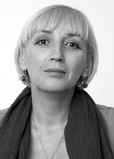Innovative model of physical education and sports disciplines in higher educational institutions
Фотографии:
ˑ:
Dr.Hab., Professor E.A. Bayer1
PhD, Associate Professor S.N. Pozhidaev2
G.I. Lyashko2
L.E. Kisileva1
1Don State Technical University, Rostov-on-Don
2Rostov-on-Don State Transport University, Rostov-on-Don
Objective of the study was to substantiate the mechanism of development of the physical education and sports disciplines in higher educational institutions through practical-oriented training.
Results and conclusions. When developing the teaching materials, the authors created the structural and conceptual models of the academic disciplines: fundamental theoretical, research theoretical, practical, theoretical and methodical, integrated, and integrative.
Henceforth, when "printing" the model of the standard discipline structure on the teaching material on the subject, there appears a model working program. Further on, the model programs are "packed" into the prescribed forms of the teaching material.
The authors emphasize that the development of academic disciplines necessitates consideration of the following aspects: the context of use of the educational program, the level of training of students, the type of training programs, models, methods and technologies of training; the application of the model properties of graduates - model characteristics combined with competences; "informative" models of the teaching material.
The authors conclude that the use of the developed models of working academic programs based on the practical-oriented approach to training of the teaching staff in the physical education and sports disciplines enables to effectively implement the academic disciplines and open new directions and profiles of training programs in higher educational institutions.
Keywords: vocational education, discipline, professional competency, employer, specialized department.
References
- Bayer E.A., Pozhidaev S.N., Knyazev A.A. Sotsialno orientirovannyie osobennosti podgotovki bakalavrov po fizicheskoy kulture i sportu [Socially sensitive specifics of Physical Education and Sport bachelor training process]. Teoriya i praktika fiz. kultury. 2018. no. 3. pp. 39-40.
- Bayer E.A., Grigoryan N.A. Metody issledovaniya urovnya fizicheskoy podgotovki detey mladshego, srednego i starshego vozrasta [Physical fitness level research methods for young, middle and senior children]. Teaching aid. Azov, 2019. p. 87.
- Pozhidaev S.N. Innovatsionnoe proektirovanie pedagogicheskikh ob'ektov – instrument povysheniya kachestva vysshego professionalnogo obrazovaniya fizicheskoy kultury i sporta [Innovative design of pedagogical objects as tool to improve quality of higher professional education in physical education and sports]. Obrazovanie. Nauka. Innovatsii: Yuzhnoe izmerenie. 2010. no. 5 (15). pp. 28-35.
- Pozhidaev S.N., Pozhidaeva I.L. Innovatsionnoe proektirovanie pedagogicheskikh ob'ektov sporta kak faktor resheniya sovremennykh nauchnykh problem [Innovatsionnoe proektirovanie pedagogicheskikh ob'ektov – instrument povysheniya kachestva vysshego professional'nogo obrazovaniya fizicheskoy kul'tury i sporta [Innovative design of educational facilities to improve quality of Physical Education and Sport higher education]. Fizicheskaya kultura: vospitanie, obrazovanie, trenirovka. 2016. no. 2. pp. 11-12.
- Struktury i kharakteristiki uchebnykh distsiplin vysshego obrazovaniya [Structures and characteristics of educational disciplines of higher education]. Missiya universitetskogo pedagogicheskogo obrazovaniya v XXI veke [The mission of university teacher education in the XXI century]. Gumanitarnaya metodologiya i praktika sovremennogo obrazovaniya [Humanitarian methodology and practice of modern education]. Proc. Intern. Res.-pract. conf. and I scient.-ped. conf. in memory of academician RAE E.V. Bondarevskaya May 26-28 2019, Russia, Rostov-on-Don: SFU publ., 2019. pp. 224-230.



 Журнал "THEORY AND PRACTICE
Журнал "THEORY AND PRACTICE